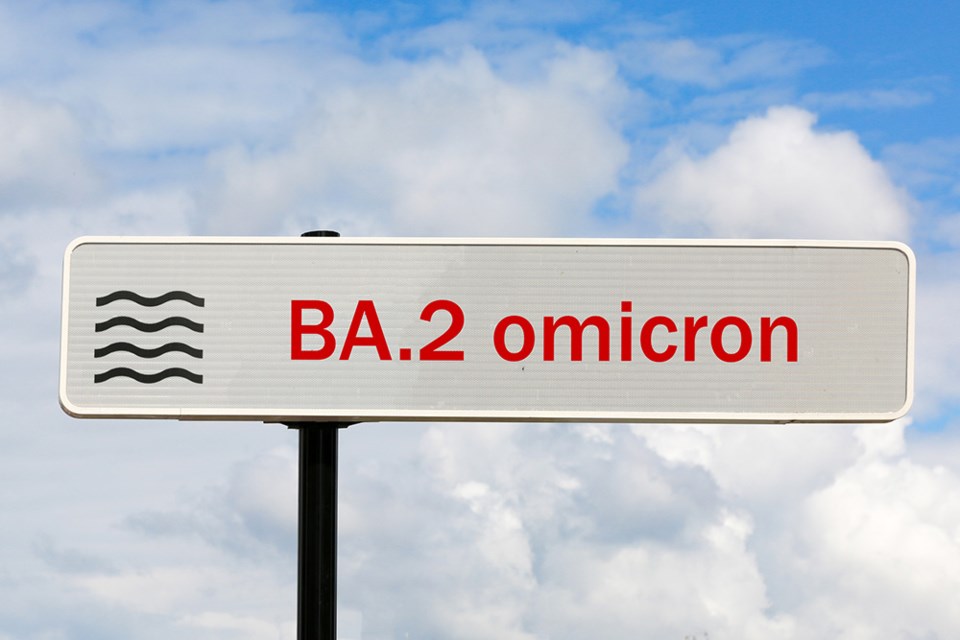REGINA — The latest Saskatchewan epidemiology (EPI) report for COVID-19 was released Thursday covering the period April 10-16, and it was a mixed bag of news.
On a positive note, new confirmed cases of COVID-19 have gone down. A total of 890 cases were reported for a case per 1,000 rate of 0.7. That is down from 1,050 the previous week and also lower than the four-week weekly rate of 1,042.
The Saskatoon region had the highest number of new cases for the week at 258, followed by Regina at 134. There were 128 cases reported in the central area, 142 new cases in the south, 151 new cases in the north, 27 in the far north, and 50 new cases were still pending resident information. The highest proportion of new cases was in Central West at a rate of one per 1,000.
On a negative note, there were 417 total COVID-19 hospitalized, up from 403 the previous week, which is a new record for hospitalizations recorded.
According to the report, the total COVID-19 ICU surge is 25, unchanged from a week earlier. Total COVID-19 incidental infections are 225, down seven, while total COVID-19 related illness is 160, up eight. Thirty-two patients are under investigation, up 13.
Sadly, there were 22 newly reported deaths during the week, two more than last week. Six of those deaths were in the Regina zone and five in the Northwest zone. Twelve deaths were of those 80 and older, seven were in the 70-79 range, two ages 60-69 and one age 40-59.
There were 539 new lineage results reported this week, and of those variants of concern identified by whole genome sequencing, the province reports 100 per cent were Omicron.
The Omicron BA.2 variant is now clearly the dominant sub-strain in Saskatchewan showing up in 61.4 per cent of sequenced cases for the week, compared to 38.6 per cent in other sub-lineages. The previous week, the numbers were 41.3 per cent and 58.7 per cent respectively.
Other statistics of note from the report:
- 7,354 laboratory tests were performed in the province reflecting 6.1 tests per 1,000 population. This was lower than the previous week (7,996);
- A little over one in nine laboratory tests were positive for a weekly test positivity of 11.7 per cent, also lower compared to the previous week (13 per cent);
- During the period Feb. 13 to April 16, the risk of hospitalization, ICU admission and death was five, nine and seven times higher respectively among unvaccinated individuals compared to those vaccinated with three doses;
- The province reports 39.5 COVID-like illness patients per 1,000 emergency department visits, which is above the average weekly rate of the previous six weeks (34.2 per week per 1,000);
- The province reports 18 confirmed COVID-19 outbreaks in long-term care and care home settings;
- Vaccinations continue to go up as of April 16. Of those age five and older, 85.8 per cent had received at least one dose of COVID-19 vaccine and 80.8 per cent had two doses. For those 18 and up, 51.7 per cent had received at least one booster vaccination;
- More than 19.7 million rapid antigen test kits have been distributed;
- As of the week of April 18, 258 Paxlovid prescriptions have been provided.
The province is reporting the oral antiviral Paxlovid is still available by prescription in Saskatchewan for treatment of COVID-19, but Remdesivir is now also available. It is an intravenous antiviral treatment for COVID-19 that has been authorized by Health Canada, which stops the virus from multiplying in cells. The treatment has been available in hospital, but now will be available on an outpatient basis, requiring three consecutive days of intravenous treatment.
Eligibility is as follows: according to the province’s news release you can be prescribed the drug if you have a positive COVID-19 test result and:
- Are immunocompromised or are 70 years and older with , regardless of vaccination status;
- Are 18 and older and not fully vaccinated (which means 14 days after completion of the primary, two-dose vaccination series);
- Are not in hospital and/or require supplemental oxygen; and
- Treatment needs to occur within seven days of a positive test and becoming symptomatic.
The province also states that Paxlovid should be considered for treatment before Remdesivir due to easier accessibility. More on Paxlovid eligibility is available at .




